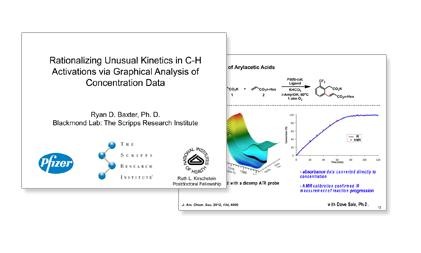
Mettler Toledo has launched an on-demand webinar titled ’Rationalising Unusual Kinetics in C-H Activations’.
Presented by Ryan Baxter, assistant professor, University of California, the webinar focuses on a graphical-analysis approach called Reaction Progress Kinetic Analysis (RPKA) to understanding unusual kinetics.
The method uses robust information gained via modern Process Analytical Technology (PAT) to develop a precise understanding of reaction kinetics in fewer experiments.
In traditional methods for defining kinetics, several analogous reactions are run with slight concentration differences.
The subsequent analysis of a single data point from each experiment — for example, per cent yield or selectivity factor — gives only partial understanding.
Additional experiments must be run to gain useful information, resulting in a process that is potentially lengthy and consumes large amounts of expensive raw materials.
The high-density data collected in a single reaction monitored with PAT, such as the Mettler Toledo ReactIR, is shown to provide a wealth of reaction information that can give real insight into reaction kinetics from the very first experiment.
In the webinar, RPKA is shown to provide a solid methodology to do so using the approximately 90% of data usually ignored in traditional kinetics.
A palladium-catalysed C-H activation chemistry chosen for its unique kinetics that had heretofore not been sufficiently explained is explored in the 17-minute presentation.
The method shown can be applied to other catalytic systems for accurate mechanistic work-ups via simple visual inspection of novel graphical manipulations.





